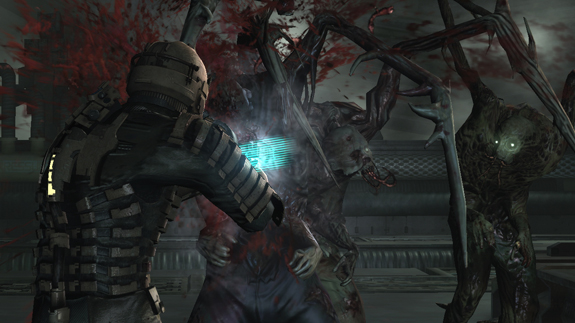This post has not been edited by the GamesBeat staff. Opinions by GamesBeat community writers do not necessarily reflect those of the staff.

A protagonist that is truly an “everyman” is the holy grail of game design. As a result, the search for a character that doesn’t come off as a bland, all-capable superhero has led to some deceit as to what that actually means — at least from the examples I've been playing.
Uncharted's Nathan Drake isn’t really an everyman — at least not anymore than Die Hard's John McClane is. He may make wisecracks and talk like many of us do, but he can also litereally kill 900 people over the span of a few days. He may struggle and flail as he attempts improbable jumps, but he always makes them. Characters like Drake are ordinary video-game superheroes that just happen to have the back up of really good writers.
While playing Dead Space again, I realized more and more that the game fails to paint protagonist Issac Clarke as “just an engineer.” I felt like an action hero cutting down hundreds of space zombies while pulling the occasional switch.
Maybe all it takes to sell a better video-game character is better writing: Take San Andreas' Carl Johnson and Red Dead Redemption's John Marston for example. It seems gamers want to keep their impossible feats of gameplay as long as the story behind it is well written. Many have said that implausibility is the only way a game can be fun: Who wants to play as a regular guy who lives a regular life and dies a regular death.
While games about a quasi-normal life can be great if done right (the closest recent example being Heavy Rain), what I’d like to see are normal people put into extraordinary situations. Almost every game features an extraordinary character in an extraordinary situation: At the very least, let’s switch one of those two things around.

The game I keep comparing Dead Space to is Frictional Games' Amnesia: The Dark Descent. In that game — as well as the Penumbra series, Frictional's other franchise — your character can’t fight enemies at all. His best weapon is his brain. When you start a new file, Amnesia immediately tells you to use your wits to escape from enemies instead of fighting them head on. The result brings these games closer to what horror movies feel like than almost any game I’ve ever played.
I’ve been trying to play Dead Space in a similar manner on its harder difficulty setting. I maneuver around enemies and slow them down so I can run away. Doing this actually makes it easier for me to believe that Issac isn’t a space marine; he's a regular guy using what tools and wits he has to survive.
These games take me back to the era of adventure games when it wasn’t set in stone that the protagonist had to kick ass all the time. The player's character would have a set of abilities that might include killing things…or merely the ability to pick up blocks. But no matter what, the developers built an exciting game around those abilities. I guess it’s just another part of how action games have taken over the business.
We spend so much time feeling more powerful than our enemies. It can be nice to feel smarter than them for a change. The industry at large still hasn’t figured out that games can be interesting — and even extremely exciting — without being power fantasies of physical dominance.
This article was cross-posted with redswirl.1up.com
